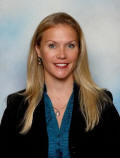Experienced Experts – Confident vs. Dogmatic |
|
Reprinted with permission. IMS ExpertServices periodically sends me e-mails that highlight recent key court cases that can significantly affect the effectiveness of expert testimony, both for the plaintiff and for the defendant. You need only scan the headlines I post daily to know the importance of effective legal representation when intellectual property (IP) is being contested. This article by Annie Dike, writing for IMS ExpertServices, cites a story by NPR that claims merely conferring 'expert' status on someone is likely to cause him/her to act in a more dogmatic, close-minded manner. Upon reading the NPR transcript of the interview, my first reaction is that the researchers who arrived at the conclusion undoubtedly have themselves been referred to as 'experts' in their field, thereby virtually assuring, evidently, that their conclusions are the result of dogmatic, close-minded biases. Besides that, the convened panels of 'experts' were in most cases deceived by the researchers who, in their own conceit, deemed themselves able to manipulate said participants in a way that affected only a tendency to raise or lower self-worth and possibly aggression. Ms. Dike aptly points out that, unlike in sterile academic research environments where results are peer reviewed often by like-minded, er, academic peers, 'experts' in the real world of a courtroom venue undergo trial [pun intended] by fire when performing in the presence of other true experts. My guess is unless the judge and jury comprise a ship of fools, no such behavior is long suffered when stakes are high. Technology at Trial: Geek or Meek? Posted by Annie Dike, Esq. February 2, 2016 Did anyone catch that NPR bit? Apparently, when you label someone an expert, you can make him behave close-mindedly. The theory is, the mere label itself bolsters the person and makes him more confident in his opinions but also more ingrained, more dogmatic in his approach. Think about that for a minute. If the label creates a dogmatic mindset, is it more of a stigma than an honor?
We found this study intriguing, and it got us thinking about two different types of experts: experienced testifiers and novice testifiers. Both may be experts in their field, but only the expert with experience in the courtroom has lived with the label of 'expert' as a professional designation. Do you believe the label itself can have a detrimental effect on the witness's presentation? Still more important, would such an alteration be a bad thing? Confidence can be an asset on the stand, though not if the expert simply comes across as narrow-minded. The focus in trial often seems to be more on the expertise, experience, and proven reputation of Dr. So-and-So in his respective field as opposed to his mere label as an expert in the case. Does this rule of thumb also apply when you are searching for a so-called expert? While you obviously want someone who is an expert in his field, do you also want him to be just that ─ still in the field? Do you feel an expert who is still actively practicing as a doctor, director, professor, etc. is somehow more persuasive? In line with the 'expert label' theory, do you feel it keeps the expert more open-minded and willing to consider new methodologies or principles? Or, does the mere fact that they're still out there, boots on the ground, still teaching, working, researching, somehow give them more jury appeal? Kathleen Hegen, a Partner at Lewis Brisbois tells us, "Although I do like to see continuing experience in the field, I'm more concerned about whether the expert is credible in his/her reasoning." We know these types of subtle nuances can make all the difference in a case, which is why we love to discuss them. Join the debate! What do you think of the 'expert label' theory? What type of expert do you like to retain and how do you like to present them to the jury? --- Add comments This article was originally published in BullsEye, a newsletter distributed by IMS ExpertServices™. IMS Expert Services is the premier expert witness search firm in the legal industry, focused exclusively on providing custom expert witness searches to attorneys. To read this and other legal industry BullsEye publications, please visit IMS Expert Services' recent articles. For your next expert witness search, call us at 877-838-8464 or visit our website. Other IMS ExpertServices BullsEye and Expert Library Articles on RF Cafe:
Posted February 19, 2016 |
|


 Here's what
went down. The social science gurus decided to test their hypothesis on people that did not yet have
(and perhaps did not quite deserve) the 'expert' title, to see what effect it had on them. They brought
in a group of volunteers, half of whom were awarded the title 'expert' while half ─ their egos thoroughly
deflated ─ were informed they fell well below the 'expert' mark. The most important part of this test,
however, was what happened after. The people whom they labeled experts began to act differently. They
became more confident in their opinions, and – the downside - less likely to listen to others and more
fixed in their views. The label itself, apparently worn like a gallant cloak around their shoulders,
actually changed their behavior.
Here's what
went down. The social science gurus decided to test their hypothesis on people that did not yet have
(and perhaps did not quite deserve) the 'expert' title, to see what effect it had on them. They brought
in a group of volunteers, half of whom were awarded the title 'expert' while half ─ their egos thoroughly
deflated ─ were informed they fell well below the 'expert' mark. The most important part of this test,
however, was what happened after. The people whom they labeled experts began to act differently. They
became more confident in their opinions, and – the downside - less likely to listen to others and more
fixed in their views. The label itself, apparently worn like a gallant cloak around their shoulders,
actually changed their behavior.